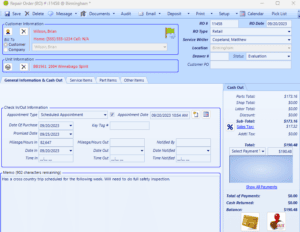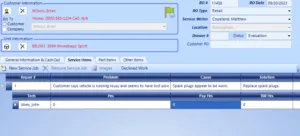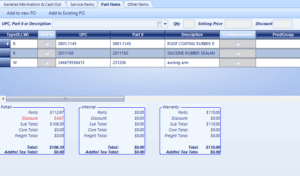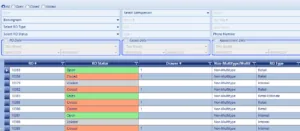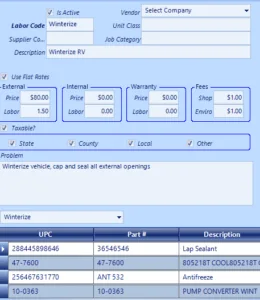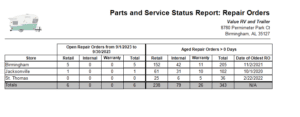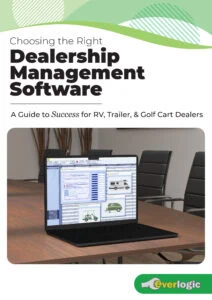Service Module
Your dealership’s service department is an important cog in the wheel that makes your business run efficiently. Your technicians may not be in the showroom, but their work is just as essential as your sales team.
When it’s time to determine the best dealership management software for your dealership, what it does on the service side of things is just as important as its function for sales. The sales module on the EverLogic software is not merely about creating repair orders (ROs) and jobs within those repair orders. Rather, the module helps technicians clearly define the work needed, the parts needed for the job, how quickly the work is completed, and how to calculate the cost of labor and parts.
EverLogic Service Features
First, EverLogic allows service managers to schedule appointments with customers and assign technicians to a job with a useful calendar. Once the customer comes into the shop, the technician can create the repair order for the unit. The easy-to-use RO form requires basic information on the customer and unit, a problem-cause-solution to be completed, parts and jobs to be added to the RO, and payments to be made.
The way the service process is designed in EveLogic DMS, service managers are able to hold technicians accountable for their time and work while also giving flexibility if, and when, circumstances change in the process of a repair order. A technician needs to clock in on each job, which keeps a tab on how long a specific job takes and uses that time clock to help calculate the labor charges, though you can also set a flat charge if you decide.
On the subject of labor charges, EverLogic is completely flexible when it comes to labor rates, allowing you to change it as necessary or even waive it if the need arises.
EverLogic also makes it easy to add parts to your RO. Whenever you assign a job to an RO, you simply need to look up the part in your inventory, double-click, and it’s added to the RO along with the price of the part. If you don’t have the part in your inventory, you can quickly set up a purchase order from your vendor’s catalog.
You can also create labor codes and part kits for common jobs like oil changes or winterizing. This process will save you time by just adding a labor code into an RO instead of filling out the entire form.
Ask us about EverLogic Mobile for Technicians!

EverLogic has now made it simple for technicians to access the EverLogic application from anywhere they need to be. We’ve done so by launching a comprehensive and user friendly tablet and mobile application called the EverLogic Tech Mobile App.
Key Benefits and Features of the EverLogic Tech Mobile App:
- Technicians can easily manage all their tasks in EverLogic while away from the computer.
- Track job times, search for parts/part numbers, view all current jobs, and more…
- Take pictures of damages to units, work performed to correct problems.
- Seamlessly transition between EverLogic Mobile on your iPad or Chromebook and the Desktop version of EverLogic.
Revive Your Dealership with EverLogic:
Your Ultimate Dealer Healer
How Do I Choose the Right DMS?
Not all dealership management systems are built equal. That’s why we’ve put together this free guide to help walk you through what to consider so you can find the best fit for your business.
We want to help, even if we’re not the right solution for you.

